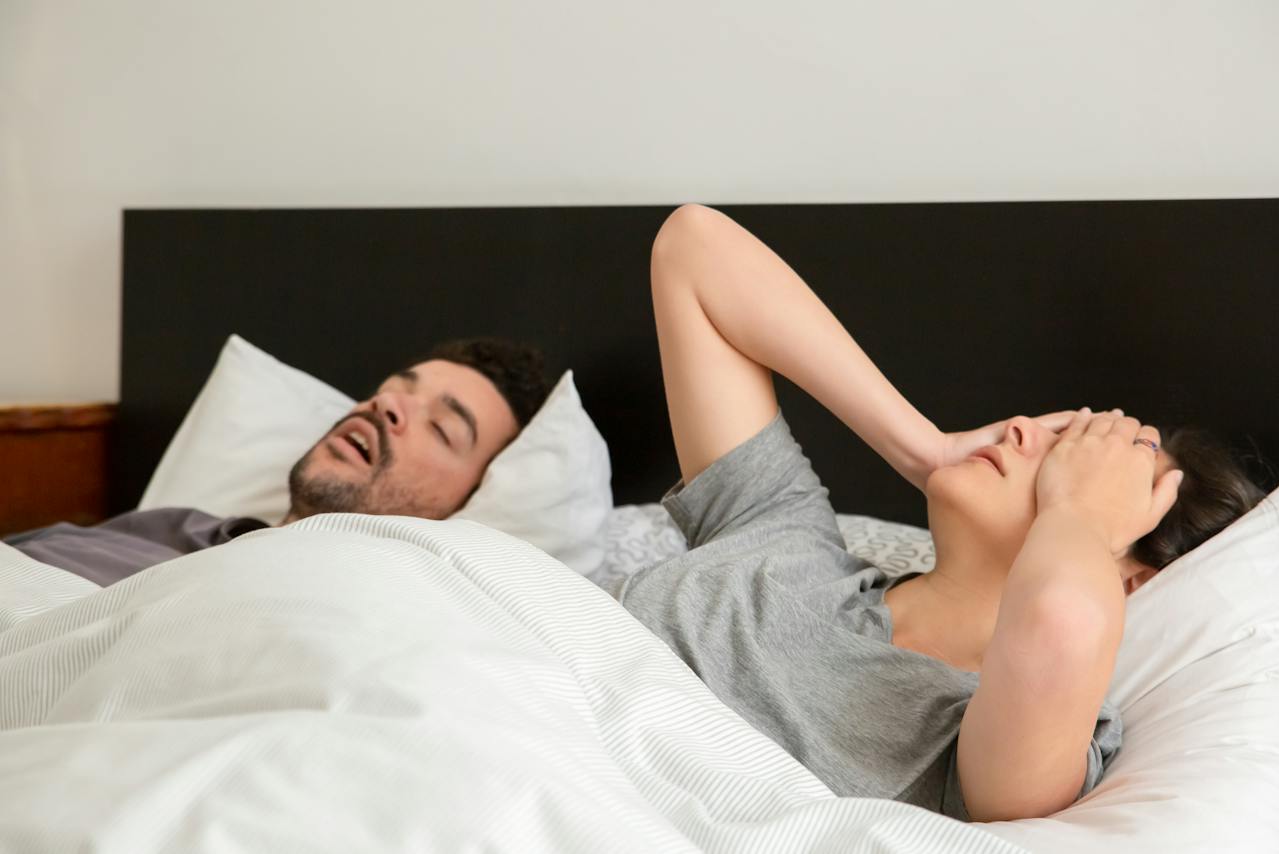Contents
- 1 Causes of Snoring
- 2 Different Types of Snoring
- 3 Understanding Sleep Positions and Snoring
- 4 Importance of Maintaining Good Sleep Hygiene
- 5 Identifying and Avoiding Snoring Triggers
- 6 The Role of Weight Management in Reducing Snoring
- 7 Effective Breathing Exercises to Reduce Snoring
- 8 Nasal Strips and Other External Devices to Stop Snoring
- 9 Oral Appliances and Their Effectiveness in Snoring Reduction
- 10 When to Seek Medical Intervention for Snoring
Causes of Snoring
One of the common causes of snoring is the relaxation of the muscles in the throat during sleep. When these muscles become too relaxed, they can partially block the airway, causing vibrations that result in snoring sounds. This relaxation of the throat muscles can be caused by various factors, such as age, obesity, alcohol consumption, and certain medications.
Another common cause of snoring is nasal congestion. When the nasal passages are blocked or narrowed, it can make breathing through the nose difficult, leading to snoring. Nasal congestion can be caused by allergies, sinus infections, colds, or structural abnormalities in the nose, such as a deviated septum. In some cases, snoring can also be attributed to the position of the tongue, where it falls back and obstructs the airway during sleep.
Different Types of Snoring
There are various types of snoring that individuals may experience. One common type is nasal snoring, which occurs when the airway is partially blocked due to congestion or allergies. This causes the sound to resonate primarily in the nasal passages, resulting in a distinct snoring noise.
Another type of snoring is mouth breathing snoring, where individuals breathe through their mouth while sleeping. This can happen due to a deviated septum or other nasal obstructions that make it difficult to breathe through the nose. Mouth breathing snoring often produces a louder and more open-mouthed snoring sound.
Additionally, there is positional snoring, which occurs when the position of the body during sleep contributes to the snoring. For instance, sleeping on your back can cause the tongue and soft tissues in the throat to relax and obstruct the airway, leading to snoring. Changing sleep positions may help alleviate positional snoring.
Understanding the different types of snoring can help individuals identify the underlying causes and potential solutions. It is important to keep in mind that snoring can vary from person to person, and addressing the specific type of snoring can lead to more effective treatment options.
Understanding Sleep Positions and Snoring
The position in which you sleep can have a significant impact on whether or not you snore. Certain sleep positions can cause the muscles in your throat and mouth to relax, leading to the vibrations that result in snoring. Sleeping on your back, for example, is known to increase the chances of snoring, as it allows your tongue to fall back and obstruct your airway. This position restricts the flow of air and can lead to loud, disruptive snoring.
On the other hand, sleeping on your side is generally considered the best position to minimize snoring. By sleeping on your side, you can help keep your airway open and allow for a smoother airflow. This position reduces the likelihood of the tongue falling back and causing an obstruction. Additionally, elevating your head with the help of a pillow can also make breathing easier and reduce snoring. Understanding the relationship between sleep positions and snoring can be the first step toward finding a more peaceful and snore-free night’s rest.
Importance of Maintaining Good Sleep Hygiene
Good sleep hygiene plays a crucial role in maintaining overall well-being and promoting restful sleep. By adopting healthy sleep habits, individuals can improve the quality and quantity of their sleep, leading to increased energy levels, enhanced concentration, and better mood throughout the day.
One important aspect of good sleep hygiene is establishing a regular sleep schedule. Going to bed and waking up at the same time every day helps regulate the body’s internal clock, making it easier to fall asleep and wake up naturally. Additionally, it is essential to create a sleep-friendly environment by ensuring the bedroom is cool, dark, and quiet. This can be achieved by using blackout curtains, earplugs, or a white noise machine to block out any external distractions that may disrupt sleep. By prioritizing and maintaining good sleep hygiene practices, individuals can maximize their sleep quality and enjoy the many benefits of a well-rested body and mind.
Identifying and Avoiding Snoring Triggers
Identifying the triggers that can contribute to snoring is an essential step in finding effective solutions. One common trigger is sleeping on your back, as this position can cause your tongue to fall back and obstruct your airway. Additionally, individuals who are overweight or obese tend to snore more frequently due to the excess fat around their necks putting pressure on their airways.
Another trigger to be aware of is alcohol consumption. Alcohol acts as a muscle relaxant, including the muscles in your throat, which can lead to snoring. Similarly, smoking can irritate the lining of your throat and nasal passages, causing inflammation and narrowing of the airways. Being mindful of these triggers can help you make necessary adjustments to your sleep routine and avoid snoring.
The Role of Weight Management in Reducing Snoring
Obesity has been identified as one of the leading factors contributing to snoring. Excess weight can lead to an increase in throat tissue, which in turn causes airway obstruction during sleep. This obstruction is what creates the snoring sound. Therefore, weight management plays a crucial role in reducing snoring.
When individuals with extra weight embark on a weight loss journey, they often experience a significant decrease in snoring. This is because shedding pounds reduces the amount of fatty tissue in the throat, allowing for a clearer and more open airway. By adopting healthy eating habits and engaging in regular physical activity, individuals can not only improve their overall well-being but also diminish the intensity and frequency of their snoring episodes. Weight management is not only beneficial for overall health but also has a direct impact on reducing snoring, leading to a better quality of sleep for individuals and their sleeping partners.
Effective Breathing Exercises to Reduce Snoring
Breathing exercises can be an effective way to reduce snoring and improve overall sleep quality. These exercises focus on strengthening the muscles in the throat and promoting better airflow during sleep. One simple exercise involves inhaling deeply through the nose and exhaling slowly and evenly through the mouth. This helps to relax the throat muscles and reduce any obstruction that may be causing snoring. Another exercise involves making a hissing sound while exhaling forcefully through a partially closed mouth. This helps to strengthen the muscles at the back of the throat, which can reduce snoring in the long run.
In addition to these exercises, practicing good breathing habits throughout the day can also contribute to decreased snoring at night. It is important to breathe deeply and fully, using the diaphragm to expand the lungs and allowing for proper airflow. This can be achieved by sitting upright, with the shoulders relaxed and the chest lifted, and taking slow, deep breaths. By incorporating these breathing exercises and habits into your daily routine, you may find relief from snoring and enjoy a more restful night’s sleep.
Nasal Strips and Other External Devices to Stop Snoring
Nasal strips are a popular external device that many individuals use to alleviate snoring. These adhesive strips are applied across the nose, with the aim of opening up the nasal passages and promoting better airflow during sleep. The strips work by gently lifting the nostrils, which may help to reduce nasal congestion and snoring. While some people find nasal strips to be effective in reducing or eliminating snoring episodes, it is important to note that their success may vary depending on the underlying cause of snoring.
In addition to nasal strips, other external devices that are commonly used to stop snoring include chin straps and nasal dilators. Chin straps are designed to keep the mouth closed during sleep, which may help to prevent the relaxation of the throat muscles that can contribute to snoring. Nasal dilators, on the other hand, are small devices that are inserted into the nostrils to widen the nasal passages and improve airflow. These devices can be particularly useful for individuals who have nasal congestion or deviated septums that contribute to their snoring. It is worth noting that while these external devices may provide temporary relief from snoring, they may not address the underlying causes of snoring and may not be effective for everyone.
Oral Appliances and Their Effectiveness in Snoring Reduction
Oral appliances, also known as mandibular advancement devices (MADs), have gained recognition as an effective means for reducing snoring. These devices are custom-made to fit the individual’s mouth and work by repositioning the lower jaw and tongue during sleep, thereby opening up the airway and reducing the vibration that leads to snoring. By wearing a properly fitted oral appliance, many individuals experience a noticeable reduction in their snoring and a significant improvement in their sleep quality. These devices are usually comfortable to wear and have been found to be effective in addressing snoring caused by mild to moderate obstructive sleep apnea.
One of the advantages of using oral appliances for snoring reduction is their convenience and ease of use. Unlike other treatment options that may require medical intervention or surgical procedures, oral appliances can be obtained through a dental professional. Additionally, they are portable and can be easily carried while traveling, making them a popular choice for individuals who are constantly on the go. While oral appliances have shown effectiveness in many cases, it is important to note that the success of the device may vary depending on the individual. It is recommended to consult with a dental professional or sleep specialist to determine if an oral appliance is a suitable option for managing snoring.
When to Seek Medical Intervention for Snoring
When it comes to snoring, it is important to understand when seeking medical intervention may be necessary. While snoring is often seen as a common and harmless occurrence, it can sometimes be a sign of an underlying health issue. If snoring is accompanied by other symptoms such as frequent daytime fatigue, morning headaches, or difficulty concentrating, it may be a good idea to consult a healthcare professional. Additionally, if snoring is causing disruptions in your own sleep or the sleep of your partner, it may be worth discussing with a medical expert to find potential solutions and improve the quality of rest for everyone involved.
Furthermore, seeking medical intervention for snoring is crucial if it is causing you significant distress or negatively impacting your overall well-being. Persistent loud snoring that is interfering with your ability to get a good night’s sleep can lead to chronic fatigue, irritability, and even strain on relationships. In some cases, snoring can also be a symptom of a more serious condition such as sleep apnea. It is important to remember that a healthcare professional can conduct a thorough evaluation, provide a proper diagnosis, and recommend appropriate treatments or interventions to address the root cause of your snoring and improve your overall sleep quality.

